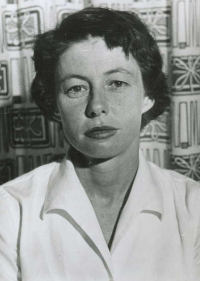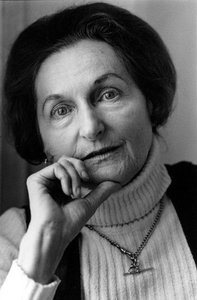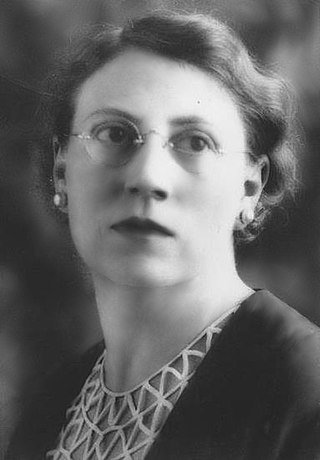Related Research Articles

Harlan Jay Ellison was an American writer, known for his prolific and influential work in New Wave speculative fiction and for his outspoken, combative personality. His published works include more than 1,700 short stories, novellas, screenplays, comic book scripts, teleplays, essays, and a wide range of criticism covering literature, film, television, and print media. Some of his best-known works include the 1967 Star Trek episode "The City on the Edge of Forever", considered by some to be the single greatest episode of the Star Trek franchise, his A Boy and His Dog cycle, and his short stories "I Have No Mouth, and I Must Scream" and "'Repent, Harlequin!' Said the Ticktockman". He was also editor and anthologist for Dangerous Visions (1967) and Again, Dangerous Visions (1972). Ellison won numerous awards, including multiple Hugos, Nebulas, and Edgars.

Alice Ann Munro was a Canadian short story writer who won the Nobel Prize in Literature in 2013. Her work tends to move forward and backward in time, with integrated short story cycles.

Helen Garner is an Australian novelist, short-story writer, screenwriter and journalist. Garner's first novel, Monkey Grip, published in 1977, immediately established her as an original voice on the Australian literary scene—it is now widely considered a classic. She has a reputation for incorporating and adapting her personal experiences in her fiction, something that has brought her widespread attention, particularly with her novels Monkey Grip and The Spare Room (2008).

Rosina Ruth Lucia Park AM was a New Zealand–born Australian author. Her best known works are the novels The Harp in the South (1948) and Playing Beatie Bow (1980), and the children's radio serial The Muddle-Headed Wombat (1951–1970), which also spawned a book series (1962–1982).

Thea Beatrice May Astley was an Australian novelist and short story writer. She was a prolific writer who was published for over 40 years from 1958. At the time of her death, she had won more Miles Franklin Awards, Australia's major literary award, than any other writer. As well as being a writer, she taught at all levels of education – primary, secondary and tertiary.

Australian literature is the written or literary work produced in the area or by the people of the Commonwealth of Australia and its preceding colonies. During its early Western history, Australia was a collection of British colonies; as such, its recognised literary tradition begins with and is linked to the broader tradition of English literature. However, the narrative art of Australian writers has, since 1788, introduced the character of a new continent into literature—exploring such themes as Aboriginality, mateship, egalitarianism, democracy, national identity, migration, Australia's unique location and geography, the complexities of urban living, and "the beauty and the terror" of life in the Australian bush.

Geraldine Brooks is an Australian-American journalist and novelist whose 2005 novel March won the Pulitzer Prize for Fiction.

Frank Thomas Moorhouse was an Australian writer who won major national prizes for the short story, the novel, the essay and for script writing. His work has been published in the United Kingdom, France and the United States, and translated into German, Spanish, Chinese, Japanese, Serbian and Swedish.

Monica Elizabeth Jolley AO was an English-born Australian writer who settled in Western Australia in the late 1950s and forged an illustrious literary career there. She was 53 when her first book was published, and she went on to publish fifteen novels, four short story collections and three non-fiction books, publishing well into her 70s and achieving significant critical acclaim. She was also a pioneer of creative writing teaching in Australia, counting many well-known writers such as Tim Winton among her students at Curtin University.

Catherine Elizabeth Grenville is an Australian author. She has published fifteen books, including fiction, non-fiction, biography, and books about the writing process. In 2001, she won the Orange Prize for The Idea of Perfection, and in 2006 she won the Commonwealth Writers' Prize for The Secret River. The Secret River was also shortlisted for the Man Booker Prize.

Jessica Margaret Anderson was an Australian novelist and short story writer. Born in Gayndah, Anderson lived the bulk of her life in Sydney apart from a few years in London. She began her career writing short stories for newspapers and drama scripts for radio, especially adaptations of well-known novels. Embarking on her career as a novelist relatively late in life - her first novel was published when she was 47 - her early novels attracted little attention. She rose to prominence upon the publication of her fourth novel, Tirra Lirra by the River, published in 1978. Although she remains best known for this work, several of her novels have garnered high acclaim, most notably The Impersonators (1980) and Stories from the Warm Zone and Sydney Stories (1987), both of which have won awards. She won the Miles Franklin Literary Award twice, and has been published in Britain and the United States. Jessica Anderson died at Elizabeth Bay, New South Wales in 2010, following a stroke. She was the mother of Australian screenwriter Laura Jones, her only child.

Glenda Emilie Adams was an Australian novelist and short story writer, probably best known as the winner of the 1987 Miles Franklin Award for Dancing on Coral. She was a teacher of creative writing, and helped develop writing programs.
Marion Mildred Halligan AM was an Australian writer and novelist. She authored twenty-three books, including fiction, short-fiction, and non-fiction. Her novel, Lovers' Knots (1992) won The Age Book of the Year, The ACT Book of the Year and the inaugural Nita B. Kibble Award. The Golden Dress (1998) was shortlisted for the Miles Franklin Award, The Dublin IMPAC Award and The Age Book of the Year. Her novels The Point (2003) and Valley of Grace (2009) also won The ACT Book of the Year. Halligan Served as Chairperson of the Literature Board of the Australia Council (1992-95) and the Australian National Word Festival. She was appointed a Member of the Order of Australia (AM), General Division, in 2006 'for service to Literature as an author, to the promotion of Australian writers and to support for literary events and professional organisations'.

Marjorie Faith Barnard was an Australian novelist and short story writer, critic, historian and librarian. She went to school and university in Sydney, and then trained as a librarian. She was employed as a librarian for two periods in her life, but her main passion was writing.
Janine Burke is an Australian author, art historian, biographer, novelist and photographer. She also curates exhibitions of historical and contemporary art. She is Honorary Senior Fellow, Faculty of Fine Arts and Music, University of Melbourne. She was born in Melbourne in 1952.
M. Barnard Eldershaw was the pseudonym used by the twentieth-century Australian literary collaborators Marjorie Barnard (1897–1987) and Flora Eldershaw (1897–1956). In a collaboration that lasted two decades from the late 1920s to the late 1940s, they published 5 novels, 3 histories, a radio drama, a collection of short stories, and several collections of critical essays and lectures.
Lydia Joyce Wevers was a New Zealand literary historian, literary critic, editor, and book reviewer. She was an academic at Victoria University of Wellington for many years, including acting as director of the Stout Research Centre for New Zealand Studies from 2001 to 2017. Her academic research focussed on New Zealand literature and print culture, as well as Australian literature. She wrote three books, Country of Writing: Travel Writing About New Zealand 1809–1900 (2002), On Reading (2004) and Reading on the Farm: Victorian Fiction and the Colonial World (2010), and edited a number of anthologies.
Jean Bedford is an English-born Australian writer who is best known for her crime fiction, but who has also written novels and short stories, as well as nonfiction. She is also an editor and journalist, and has taught creative writing in several universities for over 20 years.
Cath Crowley is a young adult fiction author based in Melbourne, Australia. She has been shortlisted and received numerous literary awards including the 2011 Prime Minister's Literary Award for Young Adult Fiction for her novel Graffiti Moon and, in 2017, the Griffith University Young Adult Book Award at the Queensland Literary Awards for Words in Deep Blue.

Sylvia Lawson was a journalist, academic and author, known for her support for cinema in Australia through her work with the Sydney Film Festival from its inception in 1954. She wrote The Archibald Paradox, a study of The Bulletin and its founder, J. F. Archibald.
References
- Adelaide, Debra (1988) Australian Women Writers: A Bibliographic Guide, London, Pandora
- "Celebrating Bega Valley Women", in Bega Valley News, 8 March 2005 Accessed: 2007-07-09
- Ellison, Jennifer (1986) Rooms of their own, Ringwood, Penguin
- Jones, Dorothy (2005) "Olga Masters (1919–1986)" in The Literary Encyclopedia Accessed: 2007-07-09
- Lewis, Julie (1991) Olga Masters: A lot of living, St Lucia, UQP
- Shapiro, Ron (2002) Books for Adults and Senior Students: Australian Adult Fiction
- Webby, Elizabeth (1983) "Short fiction in the eighties: White Anglo-Celtic male no more?" in Meanjin, Vol 42 No 1 (March 1983), pp. 34–41